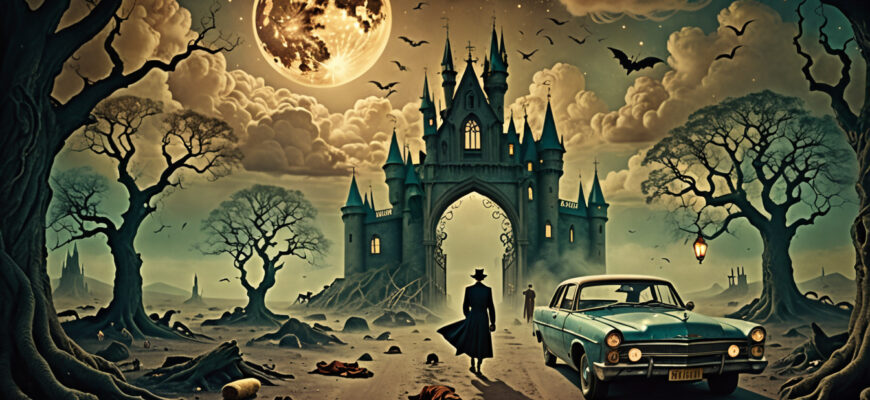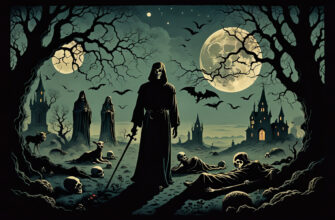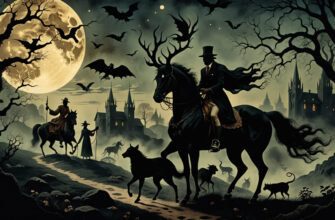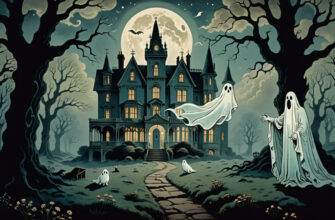Dreams in which the deceased appear carry a weight that goes far beyond typical sleep imagery. These experiences often surface during moments when the heart is still tender or when the mind is sorting through unresolved feelings. They exist at a crossroads of memory, grief, and the subconscious, and can spark a wide range of emotions—comfort, confusion, or even a strange kind of healing. When a lost loved one visits in the realm of dreams, it’s rarely random; it’s the soul’s way of working through absence and connection, loss and remembrance.
Understanding Dreams About the Deceased
These dreams tap into the raw, often unspoken, threads of our grieving process. They provide a space where what’s left unsaid or undone can find voice. Whether the encounter brings tender moments of solace or puzzles through strange, puzzling interactions, it reveals how memory holds power over the present. Sometimes, these dreams are tender reminders that the bonds shared do not simply vanish with death; they live on in the emotional and psychic landscape.
The emotional spectrum triggered by these nocturnal encounters is wide. Some might wake feeling soothed, as if a gentle hand was laid on their shoulder. Others could wake disoriented, wrestling with unresolved guilt or questions that never had answers in waking life. Healing isn’t usually an instant fix—it’s a slow, unfolding process, and dreaming of the departed often nudges that journey along. These moments in sleep create a subtle alchemy where grief can transform into something more bearable, or at least more understandable.
Deep down, these dreams act like messages from the subconscious, where fragments of memories, feelings, and hopes linger. The mind uses symbolic language in this realm—communication that’s not always literal but filled with metaphor and feeling. A dream might depict a deceased person offering advice, handing over an object, or simply sharing a quiet presence. These gestures aren’t random; they are ways the inner world tries to reconcile the loss, sometimes urging the dreamer to reflect on personal growth or hidden aspects of their inner life.
Astrological Influences on Dreams of the Dead
The celestial cycles, especially those of the Moon, play a key part in the emotional tides that bring forth dreams about the deceased. Lunar phases hold an almost mystical power over the subconscious, thinning the veil between worlds. When the New Moon or Full Moon arrives, the heart and mind are primed for deeper reflection, so dreams during these times often carry amplified meaning. Emotional sensitivity heightens, making it a ripe moment for visions of lost loved ones to emerge.
In Vedic astrology, Rahu and Ketu—the lunar nodes—serve as cosmic guides through karmic and ancestral realms. These shadow planets connect to the cyclical dance of life, death, and rebirth, stirring up ancestral memories and hidden family patterns. When their transits align with the natal chart, dreams involving the dead can intensify, presenting opportunities for healing karmic threads or understanding inherited patterns.
| Astrological Factor | Influence on Dreams About the Deceased |
|---|---|
| Moon Phases (New & Full) | Heightened emotional sensitivity; veil between worlds thins |
| Rahu & Ketu Transits | Activation of karmic and ancestral themes in dream space |
| Planetary Movements in 12th House | Connection to the subconscious, endings, and spiritual realms |
| Saturn’s Sade Sati Period | Deep processing of grief, endings, and personal transformation |
Planetary transits that bring themes of death, rebirth, or transformation often set the stage for powerful dream visits. The Moon, as the guardian of memory and emotion, governs the tides of the psyche, and its cycles help regulate when ancestral or grief dreams come through most vividly. The astrological timing acts somewhat like a cosmic weather report, guiding when the subconscious is primed for these encounters and when dream work might open portals for integration and insight.
Cultural and Spiritual Interpretations
Dreams about the departed stretch across cultures and spiritual traditions, each bringing its own lens and reverence. Some cultures understand these dreams as literal messages from ancestors, gifts of guidance meant to offer protection or blessings. Others view them as sacred thresholds where the living and the spirit world overlap, allowing healing and transformation to happen in the dream space.
Stories that cross borders often reveal how ancestral spirits speak through dreams to call communities back to collective memory or to encourage rituals of remembrance and care. For instance, some Indigenous practices honor the return of deceased family members in dreams as an invitation to engage in ceremonies that heal generational wounds or activate collective wisdom.
- Spiritual rituals like offerings or prayers create sacred spaces for dream visitors to communicate.
- Dreams can serve as rites of passage, marking transitions within grief or identity.
- A queer and feminist lens helps honor the layered identities sometimes present in dreams—acknowledging complex histories, intersectional grief, and ancestral strength.
- Dream space itself becomes a sacred portal, where healing and transformation quietly unfold.
These cultural and spiritual frames invite looking beyond the individual to see dreams of the dead as part of ongoing, living relationships with those who came before. They ask the dreamer to hold the messages gently, to listen without fear, and to make room for the mystery. Whether the dream calls for ceremony, reflection, or simply sitting with the feeling, it offers a door to deeper connection and growth.
Psychological Dimensions of Dreaming the Dead
What does it mean when those who have passed awaken in our dreams? These nocturnal encounters often surface tangled emotions around mourning, attachment, and grief that haven’t found closure yet.
Dreams serve like emotional archives where unresolved longings and sentiments swirl through symbolic imagery. Mourning isn’t just about saying goodbye—it’s a process that can resurface softly, abruptly, or over and over in the dreamscape, giving space to those things left unsaid or unlived.
As loss reshapes daily life, dreams act as mirrors for identity shifts. Suddenly, you wake up no longer the same person mapped in your past but someone adapting to absence—this transformation often shows up with vivid metaphors, unexpected dialogues, or even surreal meetings with the deceased, reflecting how your inner world is re-configuring.
Some traditions and psychological views see these visits as karmic threads unraveling through the unconscious. The deceased in dreams might be bearers of emotional and spiritual lessons, urging self-reflection about patterns, attachments, or karmic cycles unresolved in this lifetime. Whether it’s a warning, a nudge, or a healing guide, these dream narratives are often coded invitations to growth.
Bringing a trauma-informed lens to such dreams encourages tending these experiences with care and curiosity rather than fear. Recognizing that grief and loss live in the nervous system helps create space for gentler exploration, avoiding retraumatization or confusing anxiety-driven visions with heartfelt healing encounters. Approach dreams with grounding practices and compassionate inner dialogue.
It can be tricky to distinguish between anxiety-driven visions—like nightmares fueled by fear of loss or death—and dreams that offer comfort, guidance, or closure from a healing space. Anxiety dreams often feel chaotic, unresolved, or repeating distressingly, whereas healing dream visits feel purposeful, sometimes mysterious, and gently transformative.
Ultimately, these dreams hold keys to self-knowledge as liberation. They ask: What parts of yourself are emerging through your grief? How are you gathering strength in the face of absence? What inner resilience is awakening? The dead in our dreams often live in the secret chambers of our soul’s unfolding, teaching us about survival, love, and the rebirth that follows loss.
Practical Tools for Engaging with Dreams about the Deceased
Capturing the delicate threads woven through dreams of the dead can deepen healing and connection. One of the clearest ways to start is with dream journaling. After waking, jot down not just the storyline but emotions, colors, symbols, and bodily sensations. Mood, lunar phase, or planetary transits felt around the dream can add layers of personal meaning.
Rituals create sacred containers to honor those nocturnal visits and invite ancestral presence. These can look like:
- Lighting candles with intention
- Offering herbs, water, or food in a personal altar
- Writing letters or prayers directed at the dream visitor
- Creating a silent space of remembrance
Working with lunar phases amplifies intention and receptivity. For example, new moons cultivate planting dreams—what you want to invite or transform—while full moons hold potent energy for release, reflection, and integrating ancestral messages. Setting intentions around these phases helps incubate and remember dreams with clarity.
Astrology can be a fascinating companion to dream work. Tracking your dreams alongside planetary movements allows noticing patterns—say, a surge of ancestral dreams when the moon aligns with Ketu or during a Saturn transit impacting emotional houses of the natal chart. These cosmic cues provide context that invites deeper interpretations and empowers conscious engagement.
Integrating dream insights into daily life might look like morning meditations focusing on dream symbols, journaling emotional responses, or adapting behaviors inspired by loved ones’ guidance. It’s about translating nocturnal gifts into waking healing practices that resonate with your path.
Some reflection questions can illuminate the way forward:
- What emotions did the dream stir, and how do they resonate right now?
- Did the deceased offer advice, warnings, or blessings? What feels especially relevant?
- In what ways do these dreams call you to ritual, conversation, or creative expression?
- How might receiving this nocturnal message support your growth or healing journey?
These questions invite a dialogue between waking life and dream dimensions, helping turn enigmatic visits into steps toward liberation and peace. You were born for this deep, transformative work.








